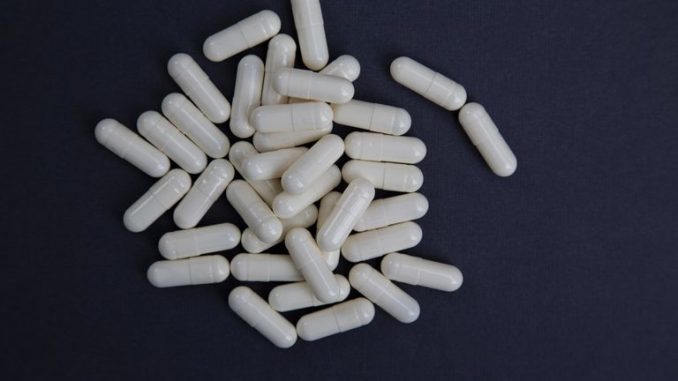
If you’ve ever noticed the label on your cereal box that says your food has been ‘fortified’, there’s a good chance it has folic acid in it. In fact, since 1998, the Food and Drug Administration made it mandatory for cereal grains to be fortified with cereal grains, so Americans could get more of the vitamin.
You may have also heard of folic acid being taken by pregnant women, who have long been instructed to take folic acid to prevent birth defects. But does it have any benefits for men?
What is folic acid?
Folic acid is the synthetic version of the water-soluble vitamin folate, a B-vitamin (B9). Foods are often “fortified” with folic acid because in its natural state, folate doesn’t do well when it comes to food storage and prep.
“You need folate to properly make red and white blood cells, utilize carbohydrates as energy, and make healthy DNA,” Robin Foroutan, MS, RDN, spokesperson for the Academy of Nutrition and Dietetics and Integrative Dietitian at The Morrison Center in New York City, tells MensHealth.com.
Folate (along with B12, B6, choline, methionine, betaine, magnesium, zinc and sulfur) also plays a major role in methylation, a biochemical progress that is involved with maintaining your body’s functions, including: cell division, DNA synthesis, detoxification and hormone balance, neurotransmitters, mood and mental health, cell membrane health, and the myelination of nerve cells, says Foroutan.
To sum it up, if you’re not getting enough folic acid, your body is not going to be able to keep its systems running smoothly.
“Maintaining healthy folate levels protects your heart and cardiovascular system, decreases the risk for certain cancers (including pancreatic, esophogeal, and colon cancers), and may reduce the risk for depression and mood disorders,” says Dr. Foroutan.
It can also boost your sperm count. In a study published in the journal Fertility and Sterility, men were given 5 mg of folic acid and 66 mg of zinc a day for 26 weeks. They found that sperm count increased in 74% of the men.
Folic acid is also used to treat digestive issues like Celiac disease, certain diseases like kidney and liver disease, and is used to treat anemia.
How you can get it
“When you think folate, think foliage — dark green leafy greens like spinach, bok choy and collard greens,” says Foroutan. “Other sources include egg yolk, asparagus, beef or chicken liver (be sure to choose organic), oranges, pinto beans, lentils, and seeds like pumpkin, sunflower and sesame.”
Or you can try a supplement — but be sure to choose a specific kind. Look for the ‘active’ form of folate, called methylfolate (of L-methyfolate), says Foroutan.
While folic acid may be fine for some people, a mutation of the gene called MTHFR that creates an enzyme involved in breaking down the amino acid homocysteine prevents them from converting folate to folic acid. About 25% of Hispanic people have the mutation, and 10-15% of Caucasian people have it.
Be sure to stick with the proper dosage.
“The RDA (recommended daily allowance) for folate is 400 mcg (micrograms) per day.”
While research is still pretty scant on the effects of taking too much folic acid, taking too much has been found to interfere with your body’s ability to actually turn it into folate. So you should always talk to a doctor before you start taking them regularly, as is the case with most supplements.
Source:-MensHealth


Leave a Reply